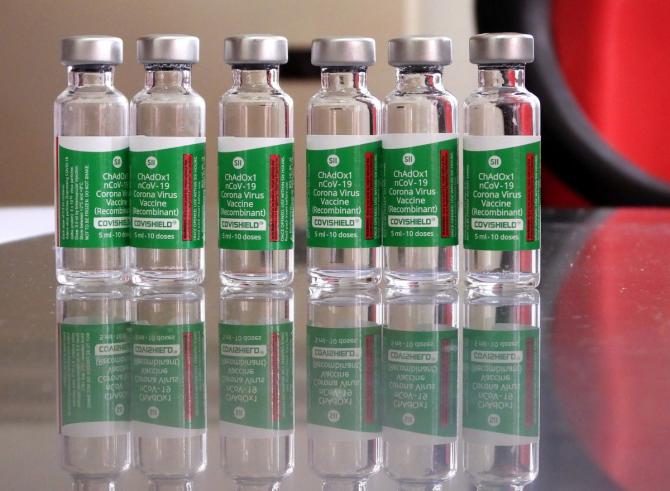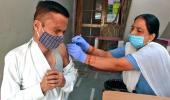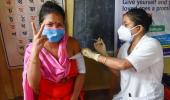Sources indicated that as there were no fresh orders from the Government of India, their supply commitments have ended as of March 31, reports Sohini Das.

India’s two major Covid-19 vaccine makers -- Serum Institute of India and Bharat Biotech -- have halted production of Covid vaccines, and will focus on non-Covid vaccines instead.
Both these firms combined have accounted for over 98 per cent of Covid-19 vaccine doses administered in the country.
So far, 1.51 billion Covishield doses and 300 million Covaxin doses have been administered in India, which makes it 98.36 per cent of the 1.84 billion doses administered in the country.
However, with demand for vaccination going down, both companies have halted the production of jabs at their facilities.
Sources indicated that there were no fresh orders from the Government of India, and their supply commitments have ended as of March 31. SII has accumulated about 250 million doses of Covishield stocks at its Pune facility, while Bharat Biotech said it had completed all its supply commitments.
SII had indicated in December that it was halving the production of Covishield as it had 500 million doses inventory at its facility.
Half of these were finished doses, while the remaining was bulk doses that were not converted to formulation.
Sources close to SII confirmed that the company was now not making the Covishield vaccine anymore, as it had sufficient stocks to take care of both domestic and export demand.
Meanwhile, sources close to Bharat Biotech said the vaccine maker will focus on making vaccines for polio, rabies, which it was making before the pandemic hit.
“Whatever batches of Covaxin are in production will be finished and dispatched. The vaccine takes 120 days to make. Thereafter, there will be no Covaxin production until we have definite orders,” the source said.
Bharat Biotech had repurposed its plants in Hyderabad, Bangalore, Ankleshwar and even Pune to make Covaxin.
Bharat Biotech is also working on setting up the manufacturing site for GSK’s plasmodium falciparum malaria vaccine (RTS,S/AS01E tentatively branded Mosquirix), which it is making for African countries.
The world’s largest vaccine maker, SII is working out plans on redeploying its installed capacity after the demand for Covid-19 vaccines wanes.
Key pipeline vaccines like those against malaria, pneumonia, and HPV are likely to go into production within the next few months to a year or so, and that will take care of capacity utilisation.
At the moment, SII has an annual vaccine manufacturing capacity of about 3 billion doses of both Covid and non-Covid vaccines.
In March 2019, the company had an installed capacity of about 1.5 billion doses.
It has doubled the manufacturing capacity at its Pune plant over the past two years.
“Typically, vaccine companies redeploy their existing facilities to make different kinds of vaccines according to the orders they have. Vaccine facilities are usually very flexible. So, one can also create a stockpile of finished vaccines or bulk form and switch that same production line to make other vaccines,” said a senior vaccine industry veteran.
SII is expecting that its malaria vaccine candidate will go into production by the end of this year.
It is now in phase 3 clinical trials in Africa, and licensure of this vaccine is expected by 2023.
Therefore, production is expected to start by the end of this year at SII,” said a source.












 © 2025
© 2025